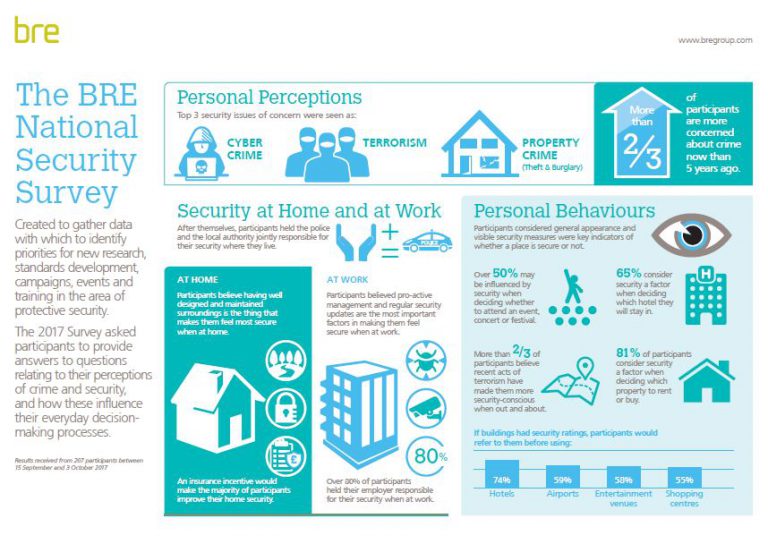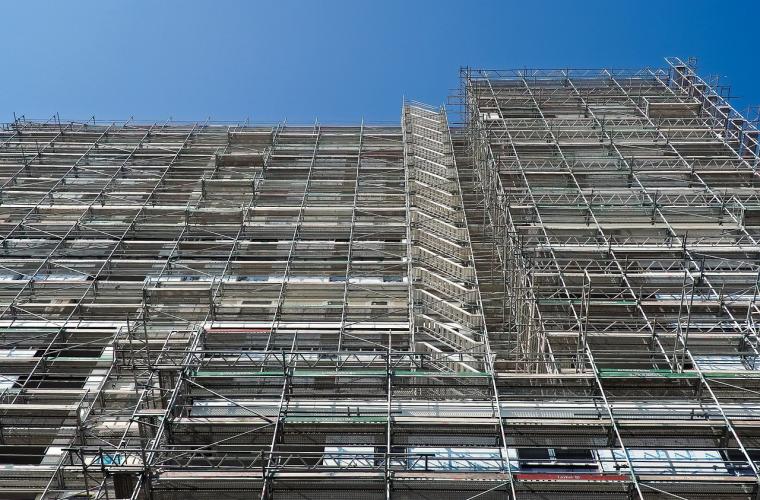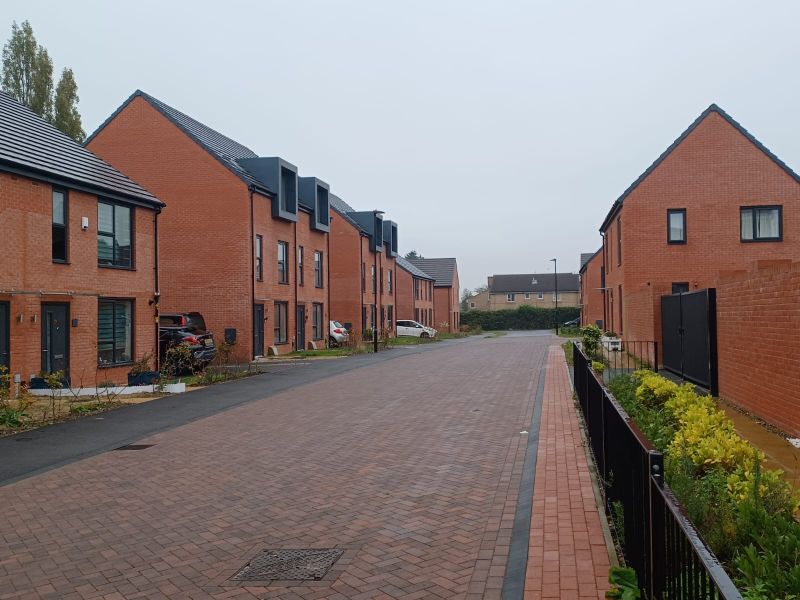The BRE
National Security Survey has revealed that personal security is becoming an
increasing worry across the UK, with 2 out of 3 respondents more concerned
about crime today than they were 5 years ago.
The top three issues
raised as causing the most concern were cyber crime, terrorism and property
crime.
Developed by the
creators of SABRE, BRE’s security assessment and certification scheme for new
and existing buildings and built infrastructure assets, the survey was
initiated to help understand how people’s perceptions influence their everyday
decision-making in relation to their home life, work-life and travel
arrangements.
Gavin Jones,
Director of SABRE, commented: “Although
we are continuing to identify effective ways to protect our built environment
from crime and terrorism, these efforts are not necessarily reflected in the
general public’s perceptions of their own personal security.
"Despite the
likelihood of an individual being directly affected by a terrorist incident
being extremely remote, recent events are having a disproportionate impact on
people’s lives; they appear to be influencing where people are willing to
travel, where they stay and whether they attend a major event or concert.
"The public
clearly need reassurance that the places they live, work and visit are safe and
secure. It is in the interests of businesses that they find innovative
solutions to this problem.”

Whilst property
crime was ranked as the highest security concern, with 43.17% of participants
ranking it as a major concern, the vast majority of respondents (87%) felt
their homes were either secure or very secure.
The survey also
highlighted the importance of crime and security in influencing the purchasing
decisions of home buyers and tenants, with half of respondents stating security
was a major influence on their choice of property and a further third believing
it would have a minor influence on their decision to purchase or rent.
In 2016 there were
38% more cyber security incidents than the previous year, whilst 2017 has
already seen a number of high-profile incidents, including a direct email hack
on the Houses of Parliament and the denial-of-service attack on Lloyds, Halifax
and Bank of Scotland, which ran for two days in January. The incident came just
months after a serious cyber-heist against Tesco Bank, when £2.5m was lost from
9,000 accounts.
Following the
increase in tempo of notable cyber attacks, it is of little surprise to see 1/4
of respondents place cyber crime as their highest concern. Despite this, 1 in 5
placed it as their lowest concern which could mean these individuals are either
content with existing security controls or are perhaps agnostic to the
potential threats posed.
Either way, it is
clear that there is a lot more to be done in relation to the threat posed by
cyber criminals, with the global cost of online attacks estimated to reach $2
trillion by 2019, a threefold increase from the 2015 estimate of $500 billion.
In a year when UK
terror arrests rose 68% to record levels, coupled with a string of large-scale
attacks across the UK and Europe, terrorism has been a regular feature of daily
news broadcasts and social media feeds. This notoriety has undoubtedly led to
increased concern around the issue, with 2/3 of respondents to the survey
stating that recent acts of terrorism have led them to become more
security-conscious when out and about.
When asked whether
recent terrorist attacks across Europe had influenced their travel decisions
within the United Kingdom, one in two respondents said they had. This
demonstrates the remarkable societal reach of terrorism, its ability to create
fear far beyond the individuals directly involved in an incident.
The economic impact
in sectors such as tourism can be significant. In the aftermath of the 2015
Paris attacks, the number of tourists entering France fell 8% and it is
estimated that tourism revenues in Paris alone were reduced by €1.5billion.
BRE’s National
Security Survey asked respondents whether their choice of hotel would be
influenced by security, with 1 in 5 respondents stating it would be a major
influence when selecting where to stay. Similar results were seen when
respondents were asked about attendance at major events and concerts. Clearly,
terrorism is influencing behaviours and making the general public more security
conscious when they are planning to be away from home.
When respondents
were asked whether they would make use of a security rating scheme for
different types of facilities (similar to that used by the Food Standards
Agency for food hygiene), 70% said they would be influenced by a scheme adopted
by hotels and 60% in the case of airports and entertainment venues. Other
notable facility types for which a security rating scheme would be welcomed
included retail malls, transport premises and entertainment venues. Clearly
there is a desire amongst the general public, particularly when using crowded
places, for greater assurance that these places are safe and secure.
In terms of security
in the workplace over 80% of respondents felt either secure or very secure at
their place of work. The vast majority of respondents stated that they hold
their employers responsible for their safety whilst at work (83%), with nearly 3/4
recognising their own role in workplace security.
When asked what
types of security measures would make them feel more secure at work, at the top
of the list was a desire to see proactive management and regular security
updates to employees (over 58%).
Security rated
windows/doors and CCTV installations came 2nd and 3rd place respectively,
highlighting that investment in management and the creation of a security
culture in the workplace may have just as significant an impact in creating an
environment where staff feel safe and secure, as capital intensive crime
prevention and security interventions.




















